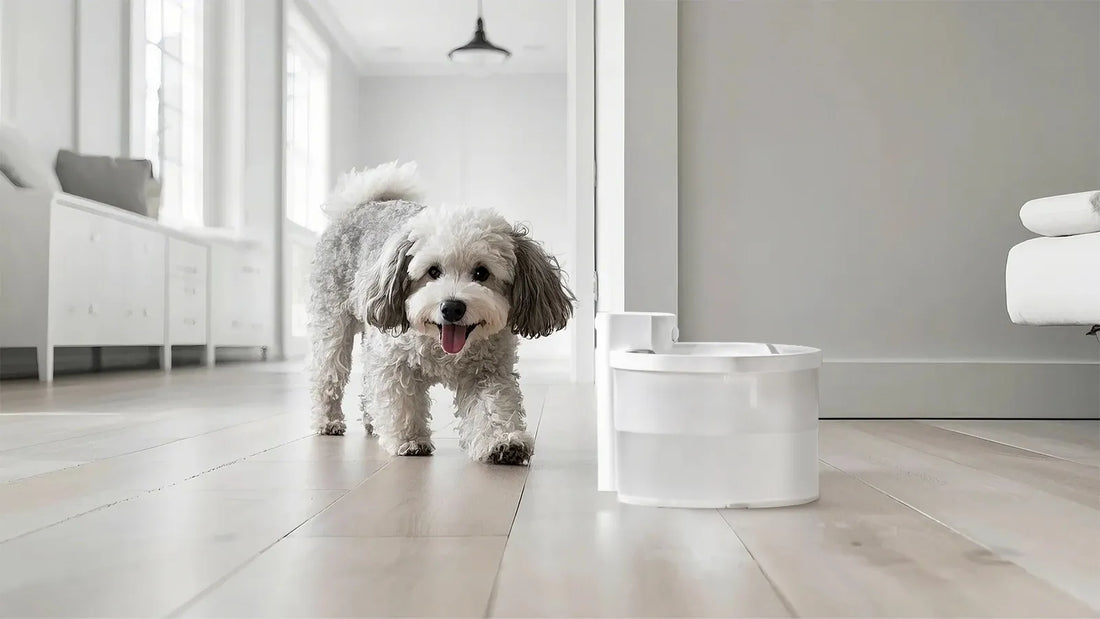If you've noticed your older dog drinking more water than usual, it's natural to feel concerned. While increased thirst can sometimes be harmless, it can also signal underlying health issues that require attention. Understanding the potential causes can help you determine whether your furry friend needs a trip to the vet or if it's just a passing phase.
Normal vs. Excessive Water Consumption in Dogs
Before jumping to conclusions, it's important to understand what constitutes normal water intake for a dog. On average, a healthy dog drinks about 1 ounce of water per pound of body weight daily. For example, a 20-pound dog would typically drink around 20 ounces of water each day. However, factors like activity level, diet, and weather can influence this amount.
Excessive water consumption, also known as polydipsia, occurs when a dog drinks significantly more water than usual. If your old dog is constantly at the water bowl or seems obsessed with drinking, it's time to investigate further.
Common Causes of Increased Thirst in Older Dogs
Several factors can contribute to why your old dog is drinking so much water. Here are some of the most common causes:
1. Kidney Disease
Kidney disease is a prevalent issue in older dogs. As the kidneys lose their ability to concentrate urine, your dog may drink more water to compensate. Other symptoms include frequent urination, weight loss, and lethargy. Early detection and management are crucial for maintaining your dog's quality of life.
2. Diabetes Mellitus
Diabetes is another condition that can lead to excessive thirst in dogs. When a dog has diabetes, their body either doesn't produce enough insulin or can't use it effectively. This results in high blood sugar levels, causing increased thirst and urination. If left untreated, diabetes can lead to serious complications.
3. Cushing's Disease
Cushing's disease, or hyperadrenocorticism, occurs when a dog's body produces too much cortisol. This hormonal imbalance can cause a range of symptoms, including increased thirst, appetite, and urination. Older dogs are more prone to this condition, and it often requires lifelong management.
4. Urinary Tract Infections (UTIs)
UTIs are uncomfortable and can cause your dog to drink more water in an attempt to flush out the infection. Other signs include straining to urinate, blood in the urine, and frequent licking of the genital area. Prompt treatment is essential to prevent the infection from spreading to the kidneys.
5. Medications and Diet
Certain medications, such as steroids, can increase thirst in dogs. Additionally, a diet high in sodium or dry food may lead to increased water consumption. If you've recently changed your dog's diet or started them on a new medication, this could be the culprit.
When to Seek Veterinary Advice
While occasional increases in water intake may not be cause for concern, persistent or extreme thirst warrants a visit to the vet. Your veterinarian can perform diagnostic tests, such as blood work and urinalysis, to identify the underlying cause. Early intervention can make a significant difference in managing your dog's health.
How to Monitor Your Dog's Water Intake
Keeping track of how much water your dog drinks can provide valuable insights for your vet. Measure the amount of water you put in their bowl and note how much is left at the end of the day. This information can help your vet determine whether your dog's thirst is within a normal range or if further investigation is needed.
Tips for Managing Excessive Thirst
If your dog's increased water consumption is due to a treatable condition, following your vet's recommendations is essential. For example, managing diabetes may involve insulin injections and dietary changes. In cases of kidney disease, a special diet and medications can help slow the progression of the disease.
Providing fresh, clean water at all times is crucial, regardless of the cause. Ensure your dog has access to water throughout the day, especially during hot weather or after exercise. Avoid restricting water intake unless specifically advised by your vet, as this can lead to dehydration.
Preventing Dehydration in Older Dogs
While excessive thirst can be a concern, dehydration is equally dangerous. Signs of dehydration include dry gums, lethargy, and loss of skin elasticity. If you suspect your dog is dehydrated, offer them water immediately and contact your vet if symptoms persist.
Encouraging your dog to drink water can be as simple as adding a splash of low-sodium broth to their bowl or using a pet fountain to make water more appealing. Regular check-ups with your vet can also help catch potential issues early.
Your old dog's increased water consumption could be a sign of aging or an underlying health issue. By staying observant and proactive, you can ensure your furry companion remains happy and healthy for years to come. Don't hesitate to consult your vet if you notice any concerning changes in your dog's behavior or habits.













